

SPOTLIGHT 26: ALLISON AU / MATT CHOBOTER / ZACK CLARKE / JAKOB SØRENSEN
textura is excited to feature Allison Au, Matt Choboter, Zack Clarke, and Jakob Sørensen in its twenty-sixth ‘Spotlight,' with each artist represented by an excellent new album: Wander Wonder (Au), Spillimacheen (Choboter), Mesophase (Clarke), and Cirkel (Sørensen). textura is deeply grateful to the artists for contributing to the article.
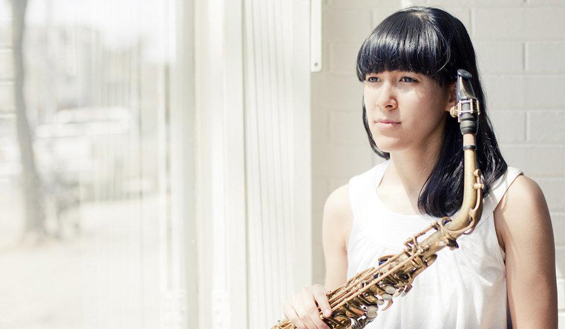
ALLISON AU
Who: I was born and raised in Toronto and still call the city home. My interest in music started at home, with my dad's vinyl and CD collection. As I kid, my dad had (and still has) a large collection of opera, folk, World music, soul, R&B, jazz, and classical records. He also exposed my siblings and me to many classic American musicals of the 1930s, '40s, and '50s. I watched a lot of these movies on VHS, movies like The Pirates of Penzance, West Side Story, Fiddler on the Roof, Singin' in the Rain, Oklahoma, Show Boat, and South Pacific. I suppose a lot of these songs shaped my early understanding of melody and songwriting.
I started piano at the age of six with a wonderful piano teacher named Reta Faibish who lived in my neighbourhood; I studied classical piano and music theory with her until I turned eighteen and left home for college. In middle school, I was fortunate to attend an arts school in Toronto, where I studied dance, drama, visual arts, and music. I loved all of my arts classes but eventually gravitated towards music as my main focus. I think my inspiration for playing the saxophone was a combination of seeing Lisa Simpson play saxophone on TV, as well as my band teacher at the time, who happened to be a woman. Maggie Thompson was one of the first real-life examples I encountered of a woman who played saxophone and thought it was the coolest thing ever. I earned a Bachelors of Music in Jazz Performance from Humber College in Toronto, where I met lots of incredibly inspiring mentors and peers. I decided soon after to pursue a life in music.
What: My music can be best categorized as contemporary jazz, but often I feel my music doesn't always fit into a specific genre category. I'm inspired by so many styles of music, and inevitably they all weave their way into my own music.
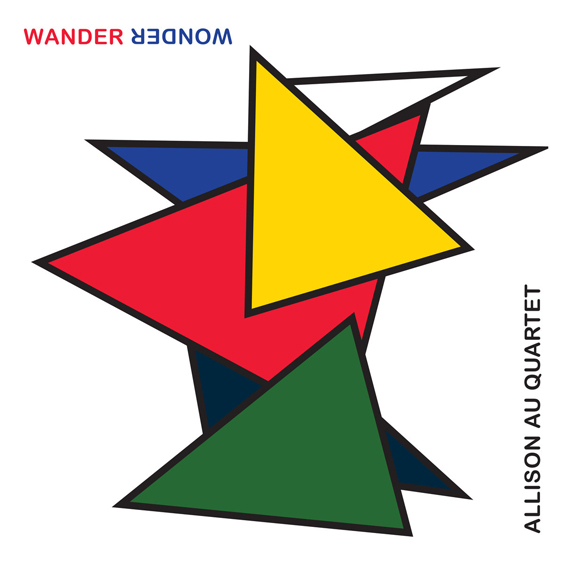
Currently: At the moment, my main focus is the quartet I lead under my own name. Our latest release Wander Wonder was recently nominated for a JUNO Award. I've toured a bunch with this group, and I'm currently working on writing new material for the band. Aside from my own project, I love collaborating with my peers on their original music projects and reelance with a lot of my friends' bands in Toronto.
Musical philosophy: Create thoughtful art. Keep an open mind and listen attentively. Work hard, be diligent, and always be kind to others.
Favourite artists and strongest influences:
Ella Fitzgerald: I think I was about six years old when I first heard Ella Fitzgerald on one of my dad's records at home. Hearing her at that age was probably the single most influential experience of my creative life. Not knowing anything about jazz at the time, I was captivated by the warmth in her voice, the playfulness and interactive dynamic of the rhythm section, and the feeling of swing. From that moment on, I was totally intrigued by Jazz and compelled to learn more about music.
Miles Davis: Miles is representative of so much of the history and evolution of jazz in the twentieth century. You can literally trace his career and learn about every significant development in the genre. I've always recognized an incredibly distinct and strong vibe to his sound. He was truly brilliant at capturing a feeling and atmosphere in music. To me, he also embodies innovation. His collaborations with Gil Evans have brought me to tears. His music has been an incredible inspiration in my creative development.
Stevie Wonder: I'm embarrassed to say it, but I didn't discover Stevie until college. Little did I know, however, that I had been listening to his music throughout my childhood and teenage years. My favourite bands in high school were R&B vocal groups of the ‘90s and early 2000s, many of who covered songs written and composed by him. But I didn't make the connection until I heard Songs in the Key of Life for the first time and realized I had been hearing covers of his songs for years. Discovering that record in particular was like stumbling over a gold mine. I continue to marvel at Stevie as a prolific songwriter and compelling performer.
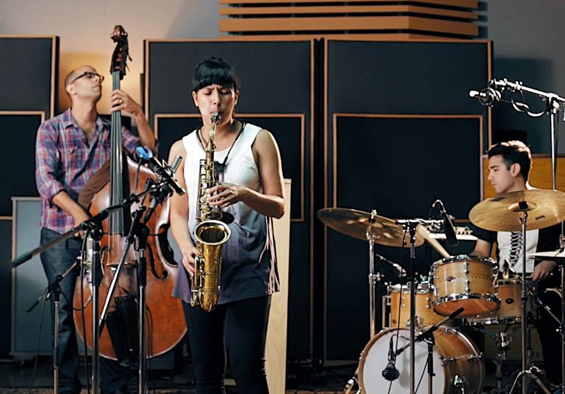
Recordings I return to repeatedly:
Joe Henderson's Double Rainbow: Here Joe explores the music of Antonio Carlos Jobim and plays with two different rhythm sections. The whole record is immaculate and full of nuance and subtleties. I love coming back to this record for those reasons.
Sonny Rollins' A Night At the Village Vanguard: I absolutely love Sonny Rollins. This album in particular is such a comprehensive example of great saxophone playing and interactive trio playing. I come back to this recording and always catch something different.
Stevie Wonder's Songs in the Key of Life: What can I say, this record is acknowledged by many as one of the best albums of all time. For me, I always hear something new on repeat listens. The writing on this is also just so incredible and diverse. Stevie emits an energy through his music that is so poignant and compelling.
A memorable event, concert, or experience: As mentioned earlier, I attended an arts school in middle school. Studying recorder was mandatory in Grade 4 and 5, and in Grade 6 we started either band or strings. If you wanted to play the saxophone, it was compulsory that you first had to study either the flute or the clarinet for a year in Grade 6. Then, after that year, you had to have another audition. If the teacher felt you were ready, you were permitted to transition to the saxophone for Grade 7.
I remember I was obsessed with the saxophone as early as age nine, well before I even started playing the recorder. I went through Grades 4 and 5 with my mind set on pursuing the clarinet, and when I got the clarinet, I was determined to practice enough to eventually reach the saxophone. After a successful audition at the end of Grade 6, my teacher told me I was allowed to start the saxophone in Grade 7. I honestly felt like I had won the lottery. I remember calling home from a pay phone at school to tell my mom the exciting news. It's a memory, though seemingly trivial, that has stayed with me forever. It has reminded me to be grateful for the seemingly little things in life. They have the potential to have very powerful reverberations.
website: ALLISON AU
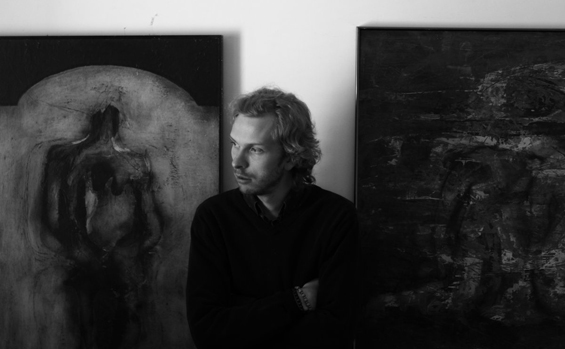
MATT CHOBOTER
Who: I was born and raised in Vancouver, British Columbia. Steeped in the western classical tradition from a young age, I discovered jazz in my late adolescence and taking to it, participated in a Bachelor in Jazz Piano Performance at North Vancouver's Capilano University and graduated in 2014. Since then, I've moved around a lot—Montréal, New York, South India, and Copenhagen—while pursuing different avenues of musical creation. Currently studying at the Paris Conservatory (CNSMDP), I'm taking part in an international studies and networking program called EUJAM (European Jazz Masters). The program also enables me to study and live in Copenhagen and Berlin, two of Europe's most vibrant scenes for modern improvisational genres.
What: My new release, Spillimacheen, is a fusion of genres. It's an expression of rhythmic concepts borrowed from Carnatic music, episodic song-structures relating to prog rock, and modern jazz trends, as well as refigured, distantly inspired excerpts from late-romantic, early twentieth century Western classical music.
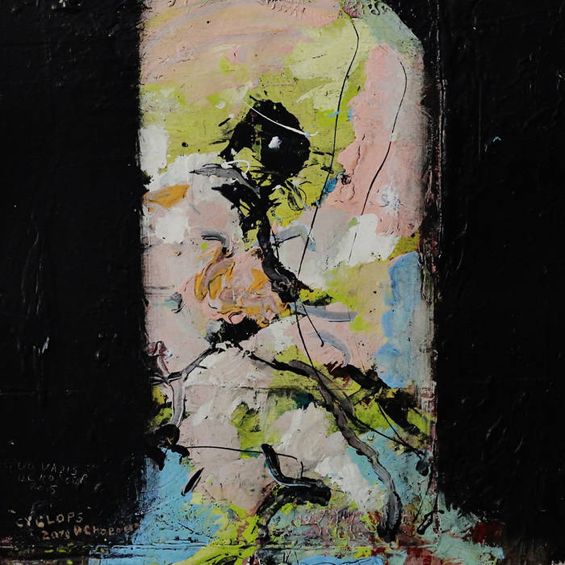
Currently: In addition to the Canadian-based quintet featured on Spillimacheen, I lead an international five-piece based in Copenhagen called Hypnagogia and, playing piano and prepared piano, co-lead a free-improvisation trio with tabla player Jan Kadereit and guitarist and effects wizard John Arne Rånes. I also collaborate with Montréal bassist and composer Cole Birney-Stewart and his bands, including Phantasmagoria.
Musical philosophy: The musical philosophy that I am gradually growing into is without a notion of genre. Eclectic, it seeks to mesh and juxtapose, thoughtfully and with attention, sonic content from any origin. All music is on equal footing in terms of inspiration towards my creative output. Spillimacheen embraces aspects of world music—specifically the classical music of South India and its rhythmic aspects—expressed through patterns of recession and growth, nuanced polyrhythm, and stretched and extended time cycles. Attention is given to how time and space can be experienced in great detail and accuracy by way of interacting macro- and micro-level compositional frameworks. Emphasis also given to the careful balance between intricate written composition and spontaneous composition, improvisation in other words. Exploring what lies between these two polarities is often the catalyst for much of the meaningful musical dialogue and personal expression unfolding.
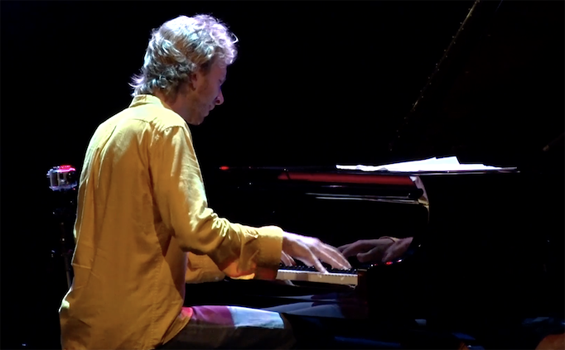
Favourite artists and strongest influences: Always difficult to shortlist, my current favoured artists include the modern pianists Craig Taborn and Benoît Delbecq alongside composer and multi-reedist, Henry Threadgill. More specific to Spillimacheen (the music being written three years ago now), I would cite Vijay Iyer, Steve Coleman, and Radiohead as wells of inspiration. It would be remiss not to mention my mother, Serah Strandberg, and how I spent countless hours listening to her practice pieces from the classical piano canon.
Recordings I return to repeatedly: Chico Buarque's Construção, Radiohead's In Rainbows, and Hamza El Din's Al Oud for their songwriting, their immediacy, and nuanced arrangements. Henry Threadgill's Too Much Sugar for a Dime and Craig Taborn's Chants for their sense of sonic language and idiosyncratic counterpoint—dialogue between musical entities.
A memorable event, concert, or experience: Hearing Luciano Pavarotti as a five-year-old at General Motors place in Vancouver and a concert given by Wayne Shorter and his Quartet at the Vogue Theatre, part of the 2012 Vancouver International Jazz Festival.
website: MATT CHOBOTER

ZACK CLARKE
Who: I grew up in Houston, Texas. Both of my parents work in the arts and raised me in a creative environment, encouraging me to follow my own path and look at music as an artform. I grew up with exposure to a vast variety of music—Earth Wind and Fire, Todd Rundgren, Chucho Valdez, Crash Test Dummies, Beethoven, etc. Both sides of my family are musical. My mom's side of the family is from Greece, and I've been influenced by Greek culture throughout my life.
I began classical piano at the age of seven and continued throughout high school, participating in many competitions and receiving recognition for both piano and composition. In my early teens, I started playing the guitar and played the cello in my middle school orchestra. I was really into Stevie Ray Vaughn. Listening to blues was very important to the development of my understanding of jazz.
I attended Houston's High School for the Performing and Visual Arts. From there I went on to study jazz performance at the New England Conservatory. My teachers included Jason Moran, Danilo Perez, Fred Hersch, and Joe Morris, among others. I received my Master's degree at New York University where I studied privately with Kenny Werner. I remain in New York, where I teach, do session work, and perform.
What: I work in a variety of mediums. I love playing jazz standards. I perform in chamber ensembles from time to time. I have also written a four-movement string quartet that's about a half-hour in length. I've written a lot of electronic music over the years, including my 2012 release Music for Headphones. I perform a lot of free improvised music, whether it's solo or with a group. Sometimes I will write through-composed music, other times more conceptual, aleatoric pieces. It's hard to say what kind of music I create with a short answer. I like to always keep possibilities open.
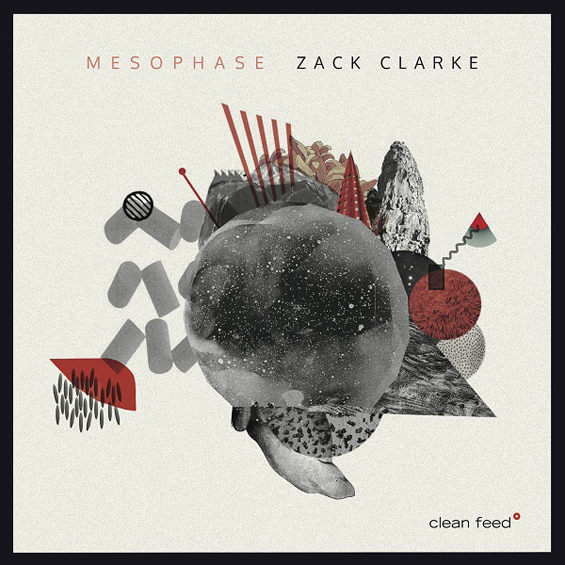
Currently: I'm doing live performances of my new album Mesophase, my second release on Clean Feed Records. The work is scored for an acoustic quintet and incorporates electronic elements and improvisation. I have a new record coming out this July on Clean Feed, an acoustic piano trio with Kim Cass and Dre Hocevar. I'm currently working on through-composed music for a jazz ensemble, and I hope to record and perform this music at some point next year. I also have more new electronic music in the works that I hope to incorporate into record soon. I have an ongoing involvement with a band called Koyari, arranging, playing piano, and composing electronics.
Musical philosophy: My process of composing music is more about discovery than dictation. I want to actively surprise myself, and if I can, I consider it a success. The only way to do this is to have a back-and-forth conversation with your art, one in which you're willing to take a back seat to what you are creating. In some ways this process is more about listening than writing.
I'm very passionate about many styles of music and I believe that examining the past provides an amazing wealth of knowledge. I want to make music that uses a wide variety of musical and ideological aesthetics and hopefully through this process to create something different and without a defined genre.
Lastly, I believe that the most important thing about making art is to just do it and in many instances ask questions later. Just go for things and let the results surprise and inspire you. Music, and in particular jazz, is a communal language. I want to always be thinking about the evolution of the community at large, and I hope that I can inspire others in some capacity.
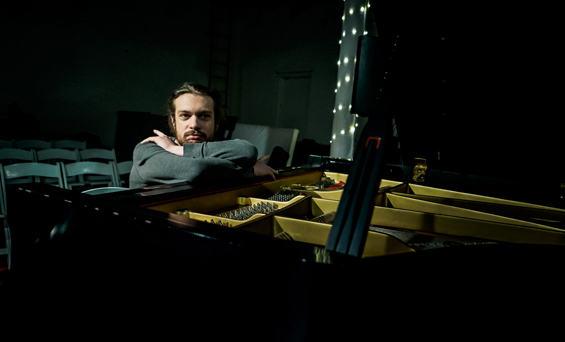
photo: Peter Gannushkin
Favourite artists and strongest influences:
Keith Jarrett: In my opinion, one of the greatest musicians of all time. He's a big reason I started and continue to play jazz.
Bach: I go through phases where I get obsessed with an individual artist and then I'll do my best to trace that artist's origins and find new musicians that way. For some reason, it always leads me to Bach. Any reason I could give as to why I like Bach would be silly considering we all already know his importance to music.
Stevie Ray Vaughn: Gateway into jazz and improvised music. I wouldn't have discovered jazz at such an early age without first discovering Stevie Ray Vaughn.
Aphex Twin: Showed me the possibilities in electronic dance music.
Recordings I return to repeatedly:
Keith Jarret Trio's Tokyo 96: One of my first jazz records. I have vivid memories of checking this out when I was a teenager. Traveling in Greece and listening to it. I've transcribed most of the record at one point or another. In my opinion the peak of the Keith Jarrett standards trio.
Pat Metheny's The Way Up: Just amazing writing and playing on this record. I remember people saying it was overproduced, but I found it showed so many possibilities in terms of production. A big influence on me in terms of what can be possible sonically, especially for jazz.
Radiohead's In Rainbows: A masterpiece of the twenty-first century in my opinion. I love the dense textures and musical phrasings. I also like the subject matter. I remember listening to this on repeat during a road trip through Texas with my dad.
Todd Rundgren's The Individualist: Always been a huge fan of Todd Rundgren. He has successfully made music on his own terms for decades and is a brilliant producer. The Individualist is my favourite record of his, partially due to nostalgia but also because of the impression I get of creativity running free.
A memorable event, concert, or experience: I remember playing in the jazz festival in Quito, Ecuador with Koyari, and having a revelatory moment on stage. As institutionalized musicians we tend to get caught up in playing smart phrases or advanced language, and that's fine for what it is. I remember going on stage and being super nervous as we were performing for a sold-out concert hall. It hit me that night on stage that the music is really just as much about the audience. I realized that there are people all over the world that are just hungry for good music. It didn't matter for me to play advanced things. It was more important to play for the audience. It was remarkable to realize that playing the simplest of things had a profound effect on the audience. This changed my mindset about what is important pertaining to music. Music is very much about sharing and enriching others and having been able to do it that evening is something that will always stay with me.
website: ZACK CLARKE
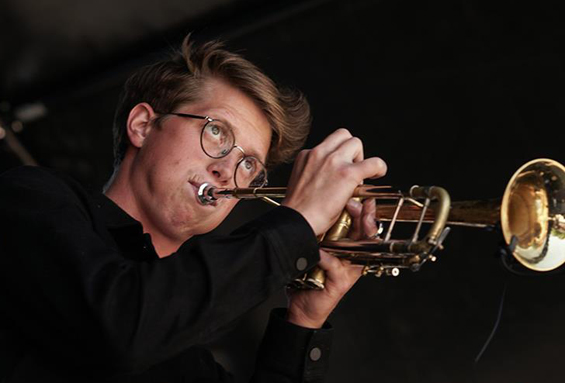
JAKOB SØRENSEN
Who: I grew up in a small city in the northern part of Denmark. My hometown was encircled by inspiring Nordic nature with sea waves hitting the shore and the wind blowing over the open heathland, something that might have meant more to me than I knew at that point. I picked up the trumpet at age ten. From then on I took part in both the local marching band and big band until I moved away to study music when at the age of twenty-one. Having finished studies in Aarhus and Berlin, I currently reside in beautiful Copenhagen.
What: I want to create music in a democratic way. When I compose I try to create space for each musician; I want them to be able to express themselves so we in the end are playing as a unit instead of me standing in front as a soloist. That being said, it doesn't always turn out that way, but we try.
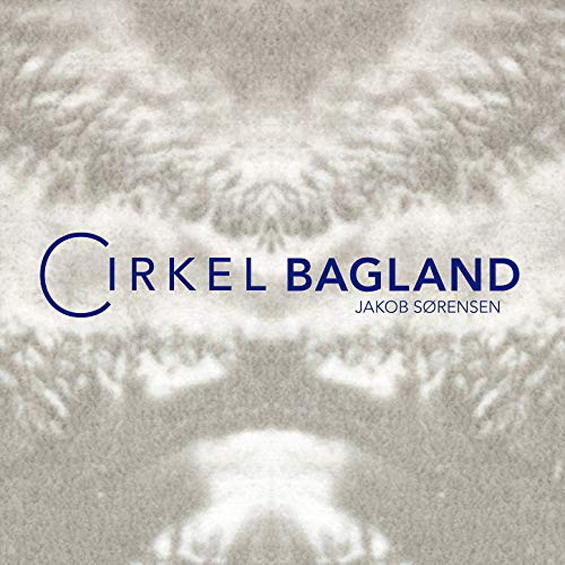
Currently: Besides my quintet Bagland, I'm also active with my trio Fabel with whom I released a visual album back in 2017, the visual part being a video that stretches through the entire album, with different videos produced for each of the eight tunes. As a sideman, I've recently played on renowned Danish bass player Lasse Mørck's album The Aztec Creation Myth.
Musical philosophy: I put a lot of patience into my music, leading to long meditative passages that force the listener to be aware of the small details in the music, stuff that I think keeps the music alive.
Favourite artists and strongest influences: The serene playing of Chet Baker, the temper of Miles Davis, and the compositions of Radiohead.
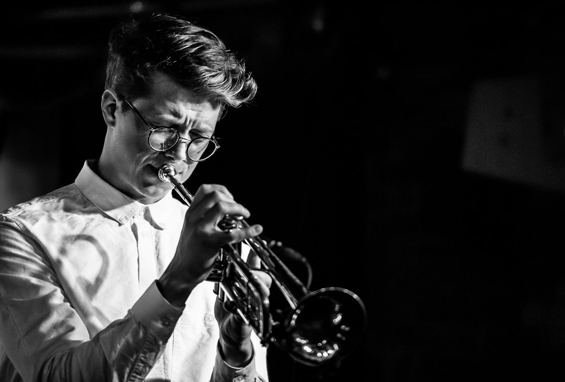
Recordings I return to repeatedly:
Clifford Brown and Max Roach's Clifford Brown & Max Roach: The sound and flow of Clifford Brown's playing continue to blow my mind.
Stan Getz and João Gilberto's Getz/Gilberto: Simplicity at its best.
Tomasz Stanko's Dark Eyes: The sound of the band is amazing throughout the recording.
A memorable event, concert, or experience: Last summer I attended a summer jazz course taught by Ambrose Akinmusire, and listening to him playing and watching him exploring the music together with his ensemble was amazing.
website: JAKOB SØRENSEN
February 2019
![]()